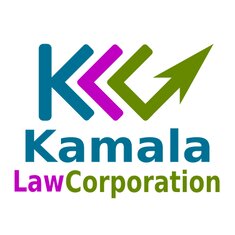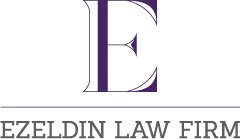Best New Business Formation Lawyers in Illinois
Share your needs with us, get contacted by law firms.
Free. Takes 2 min.
Or refine your search by selecting a city:
List of the best lawyers in Illinois, United States
About New Business Formation Law in Illinois, United States
Starting a new business in Illinois involves several legal requirements and formalities that are designed to help entrepreneurs establish and operate their companies in compliance with state and local laws. New business formation law encompasses regulations on how to legally create, register, and structure a business, ensure tax compliance, protect intellectual property, and adhere to licensing rules. Understanding these laws not only provides the foundation for a successful business but also helps avoid future legal complications.
Why You May Need a Lawyer
Navigating the process of starting a new business in Illinois can be complex, especially for first-time business owners. Legal assistance is often needed in the following scenarios:
- Choosing the appropriate legal structure, such as LLC, corporation, partnership, or sole proprietorship, based on tax implications and liability concerns.
- Drafting and reviewing formation documents, including articles of incorporation, operating agreements, and bylaws.
- Ensuring compliance with state and federal regulations, including employment laws, zoning, permits, and environmental standards.
- Protecting intellectual property, such as trademarks, service marks, and copyrights.
- Negotiating contracts and partnership agreements to avoid misunderstandings and legal disputes.
- Guiding the business through licensure and registration processes at the state and local level.
- Assisting with specialized needs, such as franchise agreements or nonprofit formation.
A knowledgeable business attorney can provide valuable guidance to prevent costly mistakes and help the business launch and grow smoothly.
Local Laws Overview
Illinois has its own laws and regulations relating to new business formation that exist alongside federal rules. Some key aspects include:
- Business Entity Selection: Illinois recognizes several types of business entities, each with different requirements, levels of owner liability, and tax obligations. Common options include corporations, limited liability companies (LLCs), partnerships, and sole proprietorships.
- Registration: Most business entities must file formation documents with the Illinois Secretary of State. This typically involves naming your business, appointing a registered agent, and filing articles of incorporation or organization.
- Licenses and Permits: Depending on the nature and location of the business, you may need specific state, county, or city licenses or permits.
- Employer Requirements: If you plan to hire employees, you will need to register with the Illinois Department of Revenue, acquire an Employer Identification Number (EIN) from the IRS, and comply with employment laws regarding wages, workers' compensation, and unemployment insurance.
- Taxation: Illinois imposes state income, sales, and use taxes. Businesses may also need to collect and remit local taxes, depending on the jurisdiction and business activity.
- Ongoing Compliance: Corporations and LLCs must file annual reports and maintain good standing with the state, pay applicable fees, and update information when changes occur.
Understanding and following these requirements is essential to launching a business legally and successfully in Illinois.
Frequently Asked Questions
What is the best legal structure for my new business in Illinois?
It depends on your specific needs, tax situation, and liability concerns. Common options include sole proprietorships, partnerships, corporations, and LLCs. Consulting with a legal or tax professional can help you choose the best fit for your circumstances.
Do I need to register my business with the state?
Most businesses except sole proprietorships operating under the owner’s name must register with the Illinois Secretary of State. Registration requirements vary by entity type.
How do I choose a name for my business?
Illinois law requires that business names be unique and not too similar to existing businesses. You can check name availability through the Illinois Secretary of State's office before filing your formation documents.
What licenses or permits do I need to start my business in Illinois?
Requirements depend on your business type and location. Common licenses include state business licenses, professional licenses, and local permits such as zoning or health permits.
How much does it cost to start a business in Illinois?
Costs vary based on business type and structure. Typically, there are filing fees for formation documents, annual report fees, and costs for permits or licenses.
Do I need a lawyer to form a business in Illinois?
While you are not legally required to hire a lawyer, getting legal guidance is highly recommended to ensure all documents are properly prepared and your business is compliant with state laws.
What is a registered agent, and do I need one?
A registered agent is a person or entity in Illinois designated to receive legal notices and official documents on behalf of your business. Most entities except sole proprietorships must have a registered agent.
How do I obtain an EIN for my business?
You can apply for an Employer Identification Number (EIN) for free through the Internal Revenue Service (IRS), usually online, by mail, or by fax.
What ongoing reporting requirements does Illinois have for businesses?
Corporations and LLCs must file annual reports with the Secretary of State, pay annual fees, and keep their registration information current.
Can I operate my business from home in Illinois?
Operating a home-based business is allowed, but you must comply with local zoning laws, HOA rules, and any licensing requirements applicable to your business activity.
Additional Resources
For more information and guidance on starting a business in Illinois, consider the following resources:
- Illinois Secretary of State Department of Business Services: Handles business registrations and filings.
- Illinois Department of Revenue: Provides tax registration and information.
- Small Business Development Centers (SBDCs): Offer free or low-cost business counseling and training.
- U.S. Small Business Administration - Illinois District Office: Offers guidance, funding options, and legal resources for startup businesses.
- Local city or county clerk’s office: Offers local business licensing and permit information.
- Illinois State Bar Association: Can help you find a qualified business attorney for legal advice.
Next Steps
If you are considering forming a new business in Illinois, carefully review your business plan, choose the right entity structure for your goals, and become familiar with both state and local legal requirements. Gather the necessary documents and register with the appropriate state agencies. Due to the legal complexity and potential risks involved, consider consulting with a qualified Illinois business attorney to help you address formation, compliance, and ongoing legal needs. Taking these steps will help ensure your business is set up for long-term success and legal compliance.
Lawzana helps you find the best lawyers and law firms in Illinois through a curated and pre-screened list of qualified legal professionals. Our platform offers rankings and detailed profiles of attorneys and law firms, allowing you to compare based on practice areas, including New Business Formation, experience, and client feedback.
Each profile includes a description of the firm's areas of practice, client reviews, team members and partners, year of establishment, spoken languages, office locations, contact information, social media presence, and any published articles or resources. Most firms on our platform speak English and are experienced in both local and international legal matters.
Get a quote from top-rated law firms in Illinois, United States — quickly, securely, and without unnecessary hassle.
Disclaimer:
The information provided on this page is for general informational purposes only and does not constitute legal advice. While we strive to ensure the accuracy and relevance of the content, legal information may change over time, and interpretations of the law can vary. You should always consult with a qualified legal professional for advice specific to your situation.
We disclaim all liability for actions taken or not taken based on the content of this page. If you believe any information is incorrect or outdated, please contact us, and we will review and update it where appropriate.
Browse new business formation law firms by city in Illinois
Refine your search by selecting a city.















